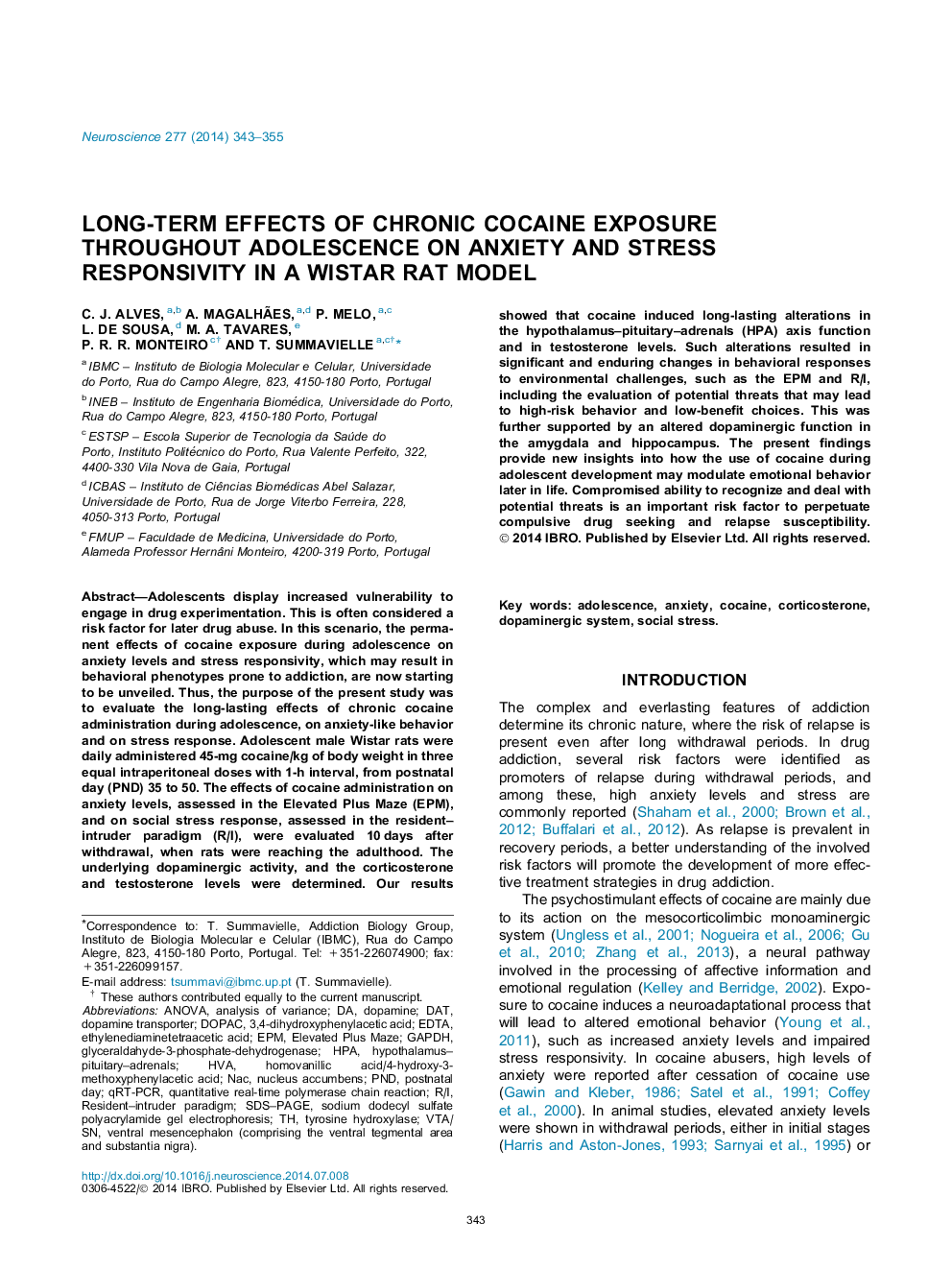| Article ID | Journal | Published Year | Pages | File Type |
|---|---|---|---|---|
| 6273610 | Neuroscience | 2014 | 13 Pages |
â¢Cocaine in adolescence affects the HPA axis in a long-lasting way.â¢Cocaine in adolescence compromises testosterone levels in the adult.â¢Cocaine in adolescence alters the adult dopamine response to challenging events.â¢Cocaine in adolescence may impair future evaluation of potential threats.
Adolescents display increased vulnerability to engage in drug experimentation. This is often considered a risk factor for later drug abuse. In this scenario, the permanent effects of cocaine exposure during adolescence on anxiety levels and stress responsivity, which may result in behavioral phenotypes prone to addiction, are now starting to be unveiled. Thus, the purpose of the present study was to evaluate the long-lasting effects of chronic cocaine administration during adolescence, on anxiety-like behavior and on stress response. Adolescent male Wistar rats were daily administered 45-mg cocaine/kg of body weight in three equal intraperitoneal doses with 1-h interval, from postnatal day (PND) 35 to 50. The effects of cocaine administration on anxiety levels, assessed in the Elevated Plus Maze (EPM), and on social stress response, assessed in the resident-intruder paradigm (R/I), were evaluated 10Â days after withdrawal, when rats were reaching the adulthood. The underlying dopaminergic activity, and the corticosterone and testosterone levels were determined. Our results showed that cocaine induced long-lasting alterations in the hypothalamus-pituitary-adrenals (HPA) axis function and in testosterone levels. Such alterations resulted in significant and enduring changes in behavioral responses to environmental challenges, such as the EPM and R/I, including the evaluation of potential threats that may lead to high-risk behavior and low-benefit choices. This was further supported by an altered dopaminergic function in the amygdala and hippocampus. The present findings provide new insights into how the use of cocaine during adolescent development may modulate emotional behavior later in life. Compromised ability to recognize and deal with potential threats is an important risk factor to perpetuate compulsive drug seeking and relapse susceptibility.
